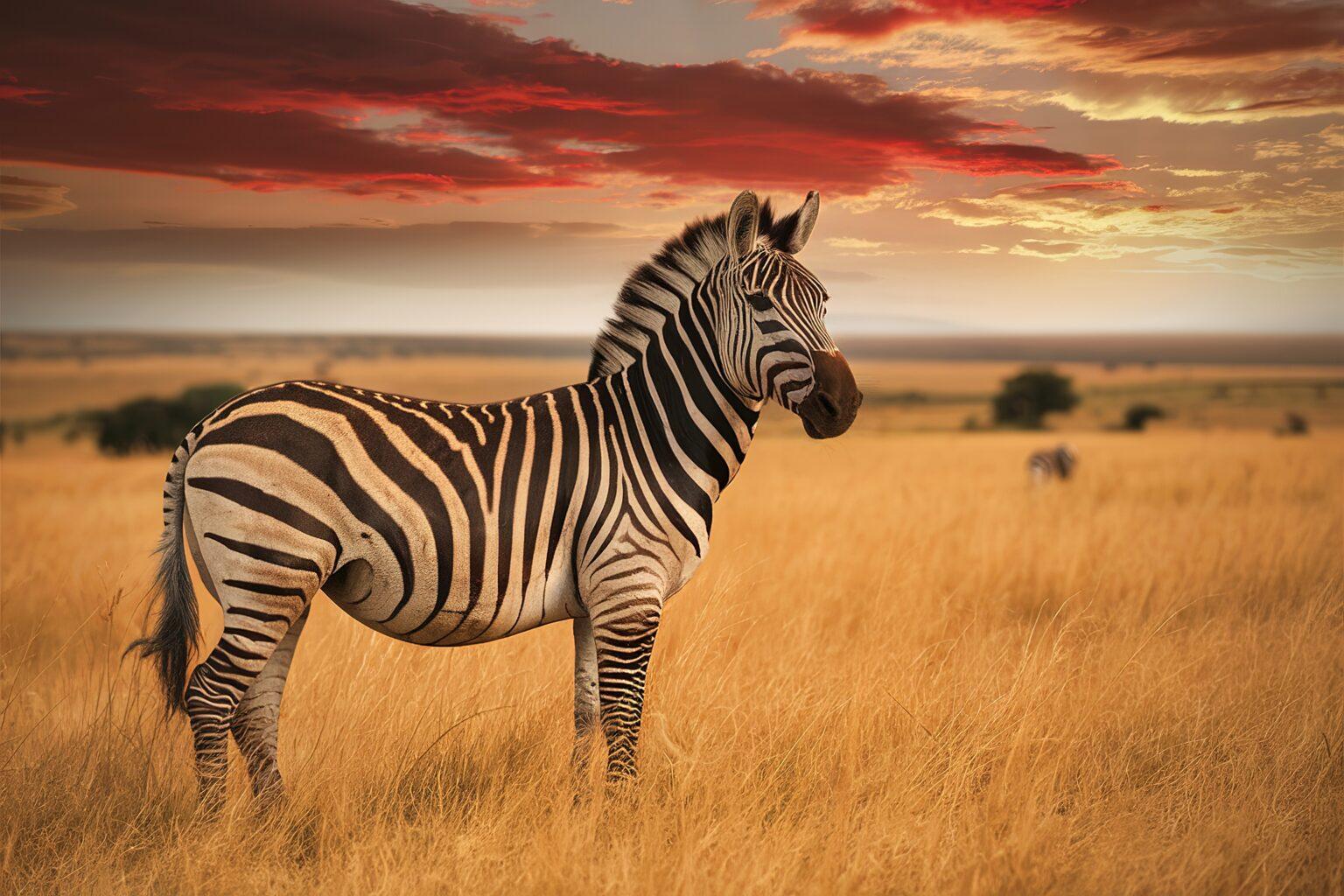Choosing the best African country for hunting sparks plenty of debate among outdoor enthusiasts. With so many diverse landscapes and game-rich regions, deciding where to start can feel overwhelming. South Africa, Botswana, Tanzania, and Namibia each offer unique hunting experiences, from the pursuit of Africa’s iconic Big 5 to specialized game species found nowhere else.
We know a hunting safari is more than a trip, it’s a chance to connect with Africa’s wild beauty and rich biodiversity. Whether you’re an experienced hunter or planning your first safari, understanding what each destination offers helps you make the most of your adventure. Let’s explore what makes these countries stand out for game hunting safaris.
[DYNAMIC-BLOGTABLEOFCONTENT]
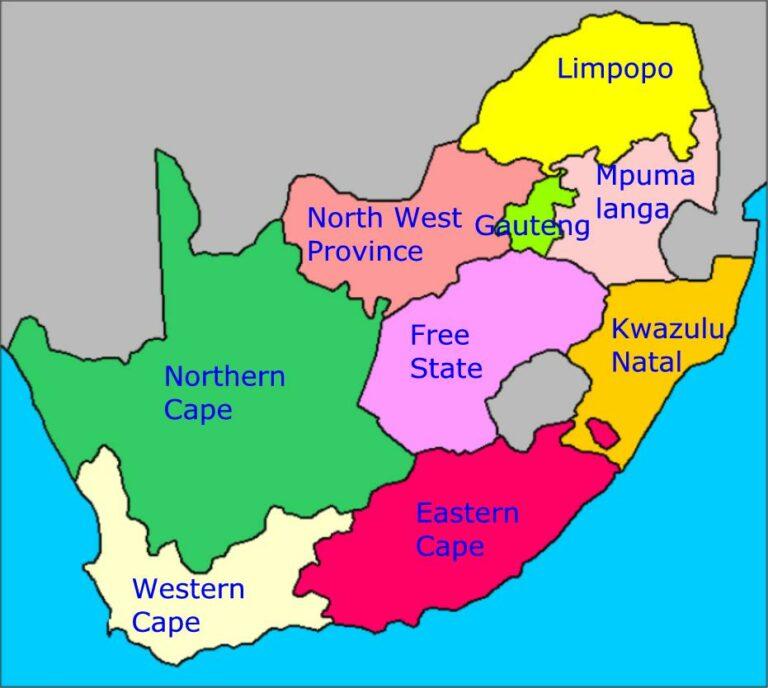
Key Takeaways
- South Africa, Namibia, Botswana, and Tanzania are top choices for African hunting safaris, each offering distinct species, hunting styles, and levels of accessibility.
-
South Africa leads in species variety and infrastructure, making it ideal for both first-time and experienced hunters seeking convenience and diverse game.
-
Namibia stands out for ethical hunting and conservation-driven practices, excellent plains game, and fewer crowds.
-
Botswana and Tanzania are premier destinations for authentic, wild hunting experiences, especially for Cape Buffalo and Africa Big 5, though they may involve more complex logistics and higher costs.
-
Carefully consider target species, permit requirements, travel logistics, and conservation policies when choosing your African hunting destination.
-
Sustainable hunting in Africa plays a crucial role in supporting local economies and wildlife conservation. Always select licensed and responsible operators.
Overview Of Hunting In Africa
Hunting in Africa draws travelers from all continents thanks to its legendary biodiversity, established traditions, and well-managed game reserves. Every year, over 18,000 hunters (SCI, 2023) from the US, Europe, and Australia travel for African hunts, searching for classic big game hunting packages or the revered Africa Big 5. The continent’s countries—like South Africa, Namibia, Botswana, and Tanzania—boast their reputations as premier destinations for African hunting safaris.
Main Hunting Destinations in Africa
-
South Africa: Offers the widest range of game species and the most accessible guided African hunts. Private reserves and professional guides make Hunting Safari in South Africa practical for beginners and seasoned hunters alike.
-
Namibia: Renowned for ethical conservation practices and quality game hunting, with steady populations of plains game and some Big 5.
-
Botswana: Recently reopened for hunting, Botswana attracts those seeking Cape Buffalo hunts and vast wilderness areas.
-
Tanzania: Known globally for classic African hunting safari experiences and one of the best spots for dangerous game.
Popular Game Species
Big game hunting in Africa centers around the Big 5 — elephant, lion, leopard, Cape buffalo, and rhinoceros. Beyond these, each country supports a list of prized species:
|
Country |
Popular Game Species |
|---|---|
|
South Africa |
Kudu, impala, warthog, Cape buffalo, white rhino |
|
Namibia |
Oryx, springbok, Hartmann’s zebra, leopard |
|
Botswana |
Elephant, Cape buffalo, sable antelope |
|
Tanzania |
Lion, leopard, greater kudu, eland |
Types of Hunting Safaris
-
Guided African Hunts: Licensed professional hunters guide all legal hunts, ensuring safety and ethical standards.
-
Plains Game Packages: Affordable, these feature antelope species and suit newcomers.
-
Africa Big 5 Packages: Focused on dangerous game, these require more experience and longer trips.
Conservation and Regulations
African hunting safaris operate under strict permitting and conservation protocols. For example, South Africa and Namibia monitor quotas, while Tanzania’s government oversees all outfitter operations. Revenues from licensed hunting support anti-poaching and land protection (IUCN, 2022).
Planning Considerations
-
Best Season: Dry months, typically May to October, enhance visibility and tracking.
-
Travel Logistics: Most countries require hunting permits and firearm import documents arranged before travel.
-
Hunting Safari in Africa Packages: Personalized options let us match interests, ability, and seasonal opportunities, ensuring memorable game hunting experiences.
Africa’s hunting safaris present a blend of challenge, adventure, and heritage. For those after variety, accessibility, and top-tier guided experiences, hunting in countries like South Africa, Namibia, Botswana, and Tanzania stands out as reliable and rewarding.
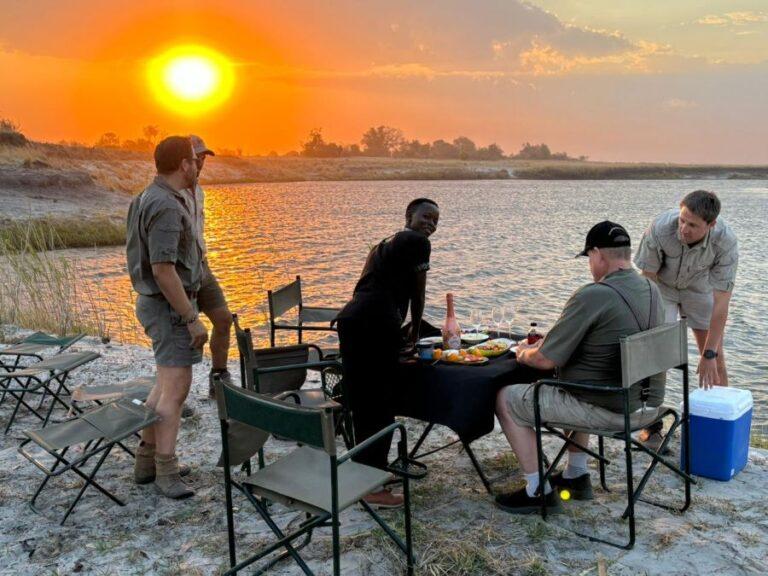
Key Factors To Consider When Choosing A Hunting Destination
Finding the best African hunting country depends on a blend of wildlife, responsible practices, regulations, and practical access. We’ve organized the main game hunting factors that shape each African hunting safari experience, helping you decide where your next adventure could take you.
Wildlife Diversity And Trophy Opportunities
Wildlife diversity and trophy opportunities matter most when planning African hunts. Countries like South Africa, Namibia, Botswana, and Tanzania offer Africa Big 5 hunting—examples include elephant, lion, leopard, Cape buffalo, and rhinoceros. Tanzania and Botswana especially attract those targeting large Cape Buffalo, while South Africa provides guided African hunts with the highest species variety. Namibia excels for plains game and rare antelope, offering a strong chance at unique trophies. Ask yourself, what game species appeal most? That answer often points to the right country.
Trophy Game Species Comparison
|
Country |
Big 5 Species |
Plains Game Variety |
Unusual Species (Examples) |
Cape Buffalo Hunts |
|---|---|---|---|---|
|
South Africa |
Yes |
40+ |
Sable, Roan, Bontebok |
Available |
|
Namibia |
Yes |
30+ |
Kudu, Oryx, Damara Dik-Dik |
Limited |
|
Botswana |
Yes |
25+ |
Lechwe, Sitatunga |
Exceptional |
|
Tanzania |
Yes |
30+ |
Lesser kudu, Eland, Bushbuck |
Premium |
Conservation And Sustainable Practices
Conservation and sustainable practices affect the future of hunting in Africa. We focus on countries where hunting revenue directly supports anti-poaching and reserve management. Namibia and South Africa lead in using hunting proceeds for wildlife protection and habitat maintenance. Tanzania and Botswana enforce quotas strictly to keep their populations stable. Always check if the operator follows sustainable principles before booking African hunting packages.
Hunting Regulations And Legal Requirements
Hunting regulations and legal requirements shape every hunting safari in Africa. For example, South Africa and Namibia issue permits quickly, making legal compliance simpler for most guided African hunts. Botswana and Tanzania, however, require complex paperwork and have stricter game quotas. Countries like Cameroon and Mozambique have extended processing times, affecting planning. Adhering to local and international hunting laws—CITES is a good example—prevents delays or legal problems. Research permit needs, season dates, and export rules for your target country.
Accessibility And Hunting Infrastructure
Accessibility and hunting infrastructure directly impact the smoothness of any game hunting trip. South Africa boasts the most developed roads, in-country flights, and close proximity of reserves to cities, making it the easiest starting point. Namibia also features modern roads and reliable camps. Botswana and Tanzania offer wilder landscapes but require longer drives or internal flights. Specialized operators in all countries provide logistics support, but the quality of transport, lodging, and amenities varies.
Accessibility At-a-Glance
|
Country |
International Airports |
Internal Flights |
Road Quality |
Safari Camp Level |
|---|---|---|---|---|
|
South Africa |
3 major |
Multiple |
High |
Luxury to rustic |
|
Namibia |
2 major |
Good coverage |
Good |
Comfortable to luxury |
|
Botswana |
2 major |
Limited |
Fair |
Luxury with fly-in |
|
Tanzania |
2 major |
Regional |
Fair |
Traditional tented |
Pick a hunting destination where you’ll not lose time or comfort getting to the action. Ask operators about transfer times, camp services, and support so you can focus on the hunt.
Planning your next hunting safari in Africa? Think species diversity, conservation, regulations, and accessibility; each factor shapes the best African hunting experience.

Top African Countries For Hunting
African hunting safaris highlight distinct landscapes, diverse game species, and rewarding experiences for hunters of all backgrounds. Each destination presents unique hunting opportunities, landscapes, and traditions.
South Africa
South Africa leads in game variety for African hunts. Hunters target over 40 species—examples include impala, kudu, nyala, and sable—as well as the Africa Big 5: elephant, lion, leopard, Cape buffalo, rhinoceros. Infrastructure here supports a wide range of hunting safari options, from guided hunts for beginners to complex Africa Big 5 hunting packages. Plains game hunting is accessible, with well-managed reserves and ample travel facilities. Hunting Safari in South Africa draws both new and seasoned hunters due to convenience and diversity.
Namibia
Namibia is known for ethical hunting in Africa and responsible game management. Hunters come for plains game hunting—oryx, springbok, Hartmann’s mountain zebra—and top-tier tracking experiences. Namibia’s low population densities and strict conservation laws mean sustainable hunting. Big game hunting includes Cape buffalo hunts and occasional elephant safaris, making it a solid choice for those seeking conservation-focused African hunting safaris.
Tanzania
Tanzania’s reputation in African big game hunting comes from its historic and expansive game reserves. Hunters encounter classic safari environments with the Dangerous 7—lion, leopard, Cape buffalo, elephant, hippo, crocodile, and rhino—often targeted here. Tanzania hunting safaris are usually longer (12-21 days), offering challenging terrain and less pressured game. Trophy quality is renowned in this region, especially for lion and buffalo hunts.
Zimbabwe
Zimbabwe remains popular with hunters seeking value and authentic African hunting safari experiences. Game species like sable, kudu, and eland are common, with renowned big game like elephant and Cape buffalo. Areas like Matetsi, Hwange, and the Zambezi Valley provide world-famous hunting grounds. Rigorous regulations help ensure ethical hunting and wildlife conservation. Hunting in Zimbabwe delivers both plains game and dangerous game options.
Botswana
Botswana is best known for premier Cape buffalo hunts and thriving elephant populations. After a brief hunting moratorium, regulated hunting resumed, focusing on sustainability. Botswana offers vast wilderness and exclusive concessions, particularly in the Okavango Delta and Chobe regions. The country’s strict quotas limit pressure on game and enhance trophy quality for big game hunting enthusiasts.
Gabon
Gabon offers a rare experience in dense rainforest. While hunting is less common, guided safaris provide opportunities for species like forest buffalo, sitatunga, and duiker. Few commercial listings exist, but those exploring hunting in Gabon find adventures in unspoiled ecosystems with high biodiversity.
Republic of Congo
Forest hunting in Republic of Congo centers on challenging rainforest terrain. Wildlife includes bongo, forest buffalo, and dwarf crocodile, appealing to hunters pursuing unique African game. There are very few outfitters, yet the experience is distinctly off-the-beaten-path and best suited for experienced African hunting safari participants with targeted interests.
Mozambique
Mozambique offers large concessions and a mixture of plains and dangerous game hunts. Buffalo, crocodile, hippo, sable, and leopard are commonly pursued here. Floodplains and savannas yield varied hunting conditions, and recovery efforts have improved game numbers in the last two decades. Mozambique stands out for wild bush hunting and multi-species hunting packages.
Cameroon
Cameroon attracts hunters seeking both savannah and rainforest species. Options include Lord Derby eland, bongo, sitatunga, and giant forest hog. Hunting in Cameroon involves both northern savannah and southern rainforest hunts. The country remains a sought-after destination for adventurous hunters seeking less common trophies.
Zambia
Zambia features strong Cape buffalo hunts and healthy populations of plains game. The Luangwa Valley and Kafue regions are top picks, offering lion, leopard, elephant, and antelope. Stringent government oversight ensures sustainable practices in hunting in Zambia, making it a respected and regulated hunting destination.
Mauritius
Mauritius, an island nation, specializes in introduced species hunting. Java deer and wild boar are common, and guided African hunts here focus on scenic trekking and unique island game. Hunting in Mauritius appeals to those looking for smaller game and an alternative to mainland Africa’s offerings.
Hunting Destination Comparison Table
|
Country |
Prime Game Species (Examples) |
Big Game |
Plains Game |
Terrain Type |
Typical Hunt Length |
|---|---|---|---|---|---|
|
South Africa |
Lion, buffalo, kudu, sable, impala |
Yes |
Yes |
Savanna, bushveld |
7–14 days |
|
Namibia |
Oryx, springbok, zebra, buffalo |
Yes |
Yes |
Desert, savanna |
7–12 days |
|
Tanzania |
Lion, leopard, buffalo, elephant |
Yes |
Yes |
Grassland, woodland |
12–21 days |
|
Zimbabwe |
Elephant, buffalo, sable, kudu |
Yes |
Yes |
Valley, savanna |
7–14 days |
|
Botswana |
Buffalo, elephant, sable, lechwe |
Yes |
Yes |
Wetland, savanna |
7–12 days |
|
Gabon |
Forest buffalo, sitatunga, duiker |
No |
Limited |
Rainforest |
7–10 days |
|
Republic of Congo |
Bongo, forest buffalo, crocodile |
No |
Limited |
Rainforest |
10+ days |
|
Mozambique |
Buffalo, crocodile, sable, leopard |
Yes |
Yes |
Floodplain, bush |
7–14 days |
|
Cameroon |
Eland, bongo, sitatunga, hog |
Limited |
Yes |
Savannah, rainforest |
10–16 days |
|
Zambia |
Buffalo, lion, leopard, antelope |
Yes |
Yes |
Valley, plains |
7–14 days |
|
Mauritius |
Java deer, wild boar |
No |
Yes |
Forests, hills |
4–7 days |
Game Hunting Safaris cover a wide spectrum of African hunting safari opportunities across these diverse destinations, supporting both trophy and experiential preferences. Each listed country enhances the choices available on every Africa hunting listing, providing unmatched adventure and access to top African game.
Comparing The Best Destinations: Pros And Cons
Choosing the right country for an African hunting safari depends on the game species, hunting styles, logistics, and conservation framework available. Here’s how top destinations measure up for Game Hunting Safaris, trophy opportunities, and overall hunting experience:
Comparison Table: Key Hunting Destinations
|
Country |
Prime Species |
Terrain Type |
Typical Hunt Length (days) |
Notable Pros |
Main Cons |
|---|---|---|---|---|---|
|
South Africa |
Big 5, 40+ plains game |
Mixed savannah |
7–14 |
Top variety, easy access |
Private land, busy season |
|
Namibia |
Kudu, oryx, plains game |
Desert, savannah |
7–12 |
Ethics, conservation |
Less Big 5, some limits |
|
Botswana |
Buffalo, elephant, antelope |
Wetlands, bush |
7–10 |
Wild herds, exclusivity |
Limited supply, access |
|
Tanzania |
Lion, elephant, buffalo |
Savannah, forest |
10–21 |
Classic safaris, trophies |
High cost, strict rules |
|
Zimbabwe |
Elephant, buffalo, leopard |
Mixed bush |
7–12 |
Value, authentic bush |
Less infrastructure |
|
Zambia |
Buffalo, lion, plains game |
Woodland, river |
7–14 |
Wilderness, diverse game |
Regulatory changes |
|
Mozambique |
Buffalo, sable, antelope |
Forest, rivers |
9–12 |
Unique species, terrain |
Logistics, permits |
|
Cameroon/Gabon/Republic of Congo |
Bongo, forest game |
Rainforest |
10–14 |
Rare species, adventure |
Cost, terrain constraints |
|
Mauritius |
Rusa deer, wild boar |
Island, forest |
3–7 |
Exotic add-on, easy access |
No Big 5, limited scope |
Selecting the right country for hunting in Africa shapes your entire experience, from the trophies encountered to the routes traversed. Game Hunting Safaris listings highlight these differences, making it easier to match hunter interests to each destination’s unique offerings. If reliable infrastructure, high species variety, and accessible guided African hunts take priority, hunting in South Africa or Namibia top the list. If rare game or remote wilderness outweigh other factors, consider Cameroon, Gabon, Republic of Congo, or Mozambique for distinct African hunts.
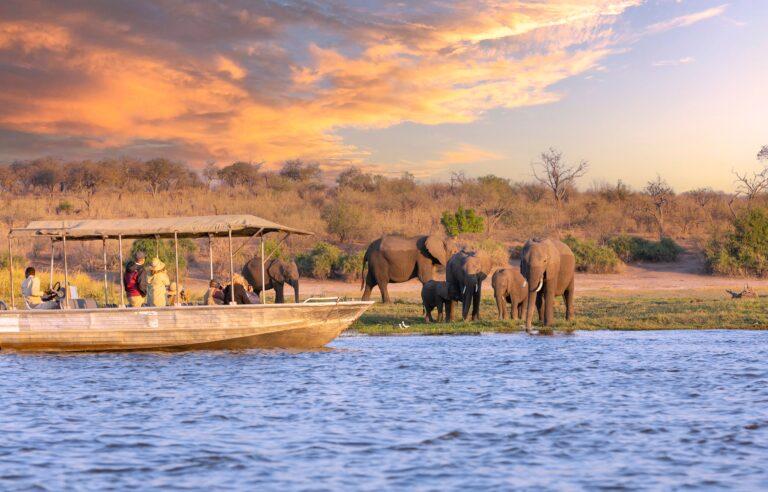
Making The Right Choice For Your Hunting Adventure
Selecting a destination for an African hunting safari depends on your target game, experience level, and travel preferences. Each country supports a unique wildlife population, offers different hunt setups, and operates under distinct hunting regulations. Let’s break down the practical steps and considerations when browsing African hunting listings and packages.
Match Destination to Target Species
Start by considering which species you hope to pursue. For example:
-
Africa Big 5 (Elephant, Lion, Leopard, Rhinoceros, Cape Buffalo)
Try hunting in South Africa, Tanzania, or Zimbabwe for a range of Africa Big 5 opportunities and well-managed Big game hunting blocks.
-
Plains Game (Kudu, Springbok, Gemsbok, Impala)
Consider hunting in Namibia, South Africa, or Botswana, where outfitters offer affordable packages and varied landscapes.
-
Cape Buffalo Hunts
Explore hunting in Botswana or Zambia if a classic Cape Buffalo hunt tops your wish list.
Not all countries offer every species, so verify availability before choosing a hunt.
Understand Hunting Permits and Regulations
Different African countries set unique hunting rules and licensing processes. For instance:
-
South Africa uses a straightforward permitting system, making it easy for both experienced hunters and first-timers.
-
Namibia emphasizes ethical hunting with clear quotas, ensuring populations remain stable.
-
Botswana and Zimbabwe occasionally adjust seasons or quotas based on wildlife studies.
Always check with an African Hunting Safari Broker or outfitter about current regulation updates before booking.
Consider Infrastructure and Accessibility
Ease of access matters. Countries with developed tourism infrastructure streamline travel and support more frequent guided African hunts.
-
Hunting Safari in South Africa offers direct international flights, paved roads, and established hunting lodges.
-
Hunting in Tanzania or hunting in Mozambique often means remote bush camps and more adventurous travel—attracting those seeking an authentic African hunting safari experience.
-
Hunting in Mauritius draws guests focusing on introduced species with short travel distances between hunting grounds.
Review Hunting Packages and Listings
Outfitters present a variety of packages tailored to skill levels, budgets, and interests. Compare features by looking at:
-
Supported game species (plains game vs. big game)
-
Hunt duration (standard is 7–14 days)
-
Included services (guides, permits, transport, lodging)
-
Conservation practices (revenue use, anti-poaching funding)
Transparent listings from Game Hunting Safaris, African hunting safari brokers, and licensed outfitters improve decision-making and value.
Factor in Conservation and Community Engagement
Sustainable hunting supports conservation and rural economies. Countries like Namibia direct significant hunting revenue into wildlife protections and local projects. Ask providers about their conservation models to make responsible choices.
Popular Destinations At A Glance
Here’s a table summarizing major hunting destinations by their standout features:
|
Country |
Game Focus |
Typical Hunt Length |
Access Level |
Unique Advantage |
|---|---|---|---|---|
|
South Africa |
Africa Big 5, Plains Game |
7–14 days |
High, developed |
Largest game variety |
|
Namibia |
Plains Game |
7–10 days |
Good, less crowded |
Ethical conservation model |
|
Botswana |
Cape Buffalo, Big Game |
10–14 days |
Moderate, remote areas |
Wild, authentic settings |
|
Tanzania |
Africa Big 5, Big Game |
10–21 days |
Moderate, rugged |
Classic safari experience |
|
Zimbabwe |
Big Game, Plains Game |
7–14 days |
Good, variable |
Value, authenticity |
|
Mozambique |
Plains & Big Game |
7–12 days |
Moderate, remote |
Unique species, new terrain |
|
Mauritius |
Introduced Species |
3–7 days |
Excellent, compact |
Specialized game focus |
Compare these options to align your hunting safari in Africa with your dream species, travel comfort, and budget.
Ask The Right Questions
Before booking, consider these:
-
Which species are in season and available in the chosen area?
-
What’s included in the listed hunting package?
-
Are the outfitter’s conservation practices independently verified?
-
How many hunters and guides per group?
Answers to these questions help refine your options and ensure the best African hunts for your interests.
And for those planning a first hunting safari in Africa or seeking specialized hunts—like hunting in Cameroon’s forests or big-game tracking in Mozambique—exploring multiple listings and speaking directly with providers clarifies every detail. This approach simplifies finding the right African hunting safari—one that balances adventure, target game, and positive conservation outcomes.
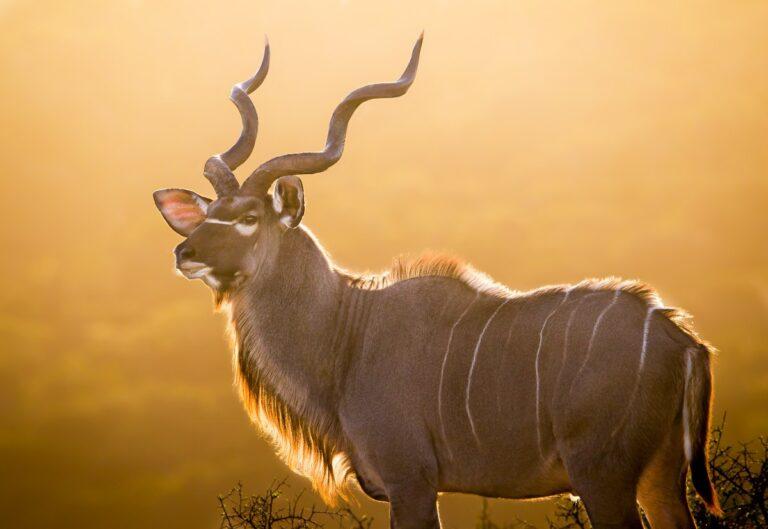
Conclusion
Choosing the best African country for hunting depends on our personal goals, preferred game species, and appetite for adventure. Each destination offers its own blend of wildlife, landscapes, and hunting traditions that make every safari unique.
As we weigh our options, it’s essential to consider not just the trophy opportunities but also the conservation impact and local community benefits. By making informed choices, we can ensure our hunting experiences are both memorable and responsible, leaving a positive legacy for Africa’s wild places.
Frequently Asked Questions
What is the best African country for hunting safaris?
The best African country for hunting depends on your game interests and experience. South Africa is ideal for variety and accessibility, Namibia excels in ethical hunting and plains game, Botswana is known for Cape Buffalo, and Tanzania offers classic safari experiences with dangerous game. Each country has unique advantages.
Which animals are most sought-after by hunters in Africa?
The most sought-after animals are the “Big 5”: elephant, lion, leopard, Cape buffalo, and rhinoceros. Many hunters also pursue plains game such as kudu, springbok, impala, sable, and waterbuck, depending on the country.
Are hunting safaris in Africa ethical and conservation-based?
Yes, most hunting safaris operate under strict regulations. Hunting revenues fund conservation, anti-poaching efforts, and local community development. Countries like Namibia and South Africa are especially known for their ethical, sustainable hunting practices.
What kind of hunting safari is best for beginners?
Beginners often start with plains game packages, which focus on non-dangerous species and are widely available, especially in South Africa and Namibia. These safaris typically include guided hunts and support for first-time hunters.
What permits are required to go hunting in Africa?
Hunters need licenses and permits, which vary by country and the game species targeted. It’s essential to arrange these in advance through your outfitter and ensure compliance with all export and import regulations.
When is the best season to hunt in Africa?
The best hunting season is usually the dry winter months—from May to September—for clear visibility and easier animal tracking. However, specific timing may vary by country and target species.
How do I choose the right African country for my hunting safari?
Consider the target species, hunting regulations, conservation practices, travel logistics, and safari packages offered. Research each destination’s specialties, infrastructure, and overall experience to match your goals and budget.
Is dangerous game hunting available in all African countries?
Dangerous game (like lion, leopard, and Cape buffalo) is mainly available in countries like South Africa, Tanzania, Zimbabwe, Botswana, and Zambia. Regulations and opportunities can vary significantly between locations.
What types of terrain can hunters expect in Africa?
African hunting terrains include savannahs, grasslands, woodlands, forests, mountainous areas, and even rainforests. Terrain differs by country—South Africa offers diverse biomes, Namibia features arid landscapes, and Gabon or Congo offer rainforest hunts.
Are hunting safaris accessible and affordable for everyone?
Accessibility and cost vary widely. South Africa and Namibia tend to be more affordable and have better infrastructure, while countries like Tanzania and Botswana may require more travel logistics and budget flexibility.
